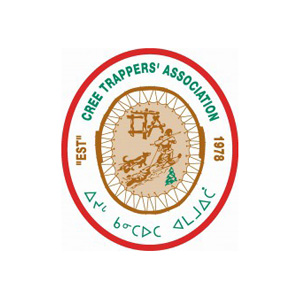CREE FIRST NATION OF WASWANIPI
Partners for Sustainable Management of American Marten
Sustainable management of American marten trapping activities: training, development, monitoring, and enhancement of economic benefits
Why This Project Matters
Indigenous youth are Canada’s fastest-growing demographic group. At the same time, many of these Indigenous youth feel unsure of the opportunities they will be able to enjoy as adults. This project will help youth see how the Cree way of life still connects very strongly to the land. It will pass on the values that teach the Cree to take only what they need from the land and ensure the continued existence of forests, rivers, and wildlife. The program will also introduce Cree youth to scientific concepts and encourage them to consider careers as wildlife and resource professionals.
This project aims to find alternative solutions to help preserve American marten populations and to support traditional activities practiced by Cree tallymen, in the context of harmonization of traditional activities with forestry operations. A Cree tallyman is a Cree person recognized by a Cree community as being responsible for supervising harvesting activities on a Cree trapline.
Why is SFI Involved?
The SFI Conservation and Community Partnerships Grant Program is supporting this project. This project supports education and outreach around American marten populations, and it will propose solutions to harmonize traditional activities with sustainable forest management. SFI also values this project because it will help transfer knowledge to youth and combine traditional and scientific approaches. The project’s potential to lead to career opportunities in resource and wildlife management is another key reason for SFI’s support.
One of SFI’s priorities is to connect youth to forests through education. We look for ways to instill a lifelong appreciation for the value forests represent for biodiversity, the broader environment, sustainable communities, responsibly sourced forest products and for our shared quality of life. The educational focus of this project also supports SFI’s focus on encouraging the next generation of future forest leaders. This project builds on the success of a related 2017 project: Marten Monitoring and Youth Knowledge Transfer.
How the project builds SFI community engagement
Young people and Cree tallymen will work together at each stage of this project. This approach, combined with communication and promotional tools, will generate interest across the entire Waswanipi community and other Indigenous communities. Public information sessions with visual support materials such as field equipment, a leaflet in three languages and multimedia presentations are planned. In addition, a trapping logbook and newsletters will be produced and distributed to the community and to Cree Trappers’ Association offices. Free marten nesting boxes will also be distributed in the community.
This project also stands out from standard scientific monitoring programs because it advocates the integration of traditional knowledge from trappers and elders of the community in the development of protocols and the establishment of the monitoring. The project also gives SFI Program Participants in the Quebec SFI Implementation Committee an opportunity to engage directly and learn from the community of Waswanipi.
Partners
This partnership includes educators, researchers, conservationists, government, and industry.
- Project lead: Cree Trappers Association and Cree First Nation of Waswanipi
- Sustainable Forestry Initiative
- WashWa Nu
- Societé du Plan Nord
- Quebec SFI Implementation Committee
Related information
- Addressing Indigenous Interests and Building Partnerships (fact sheet)
- SFI’s Kathy Abusow speaks on CBC Radio about the SFI Small-Scale Forest Management Module for Indigenous Peoples, Families, and Communities pilot (listen)
- SFI Small-Scale Forest Management Module for Indigenous Peoples, Families and Communities

About the Cree Trappers Association and the Cree First Nation of Waswanipi
The Cree Trappers Associationis dedicated to preserving Cree culture by practicing traditional activities. Association members believe by maintaining Cree principles and values they can pass on Cree culture to the younger generation. Waswanipi means “Light on the Water,” it describes the Cree First Nation of Waswanipi’s past when they used torch light fuelled by pine tar, to spear and catch sturgeon that had gathered to spawn at the mouth of Waswanipi River. The modern community of Waswanipi, Quebec is about 600 km/375 miles directly north of Ottawa. While the development of the region has had an impact on Cree lands and communities, they are committed to the sustainable management of their resources. The Cree First Nation of Waswanipi’s support for the model forest networks is an example of what can be achieved through proper consultation and research on development within traditional Cree territory.
Share
COPY LINK: https://forests.org/grant-cree-first-nation-marten-trapping/